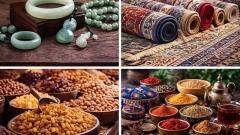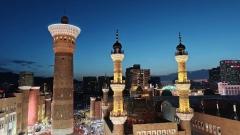Xinjiang, a vast and mysterious land, is a treasure trove of multicultural heritage. The region’s ethnic handicrafts blend elements from the Uyghur, Kazakh, Mongolian, and other cultures, showcasing a unique and rich artistic charm.
Behind every handcrafted piece lies the inherited skills and deep cultural heritage passed down through generations of artisans. Whether it’s the brightly colored embroidery or the rustic and sturdy felt products, all reflect the Xinjiang people’s love and pursuit of a beautiful life.
When you visit Xinjiang, besides enjoying its magnificent natural scenery and diverse ethnic customs, don’t forget to bring back an authentic handicraft as a souvenir. These crafts are the best testimony to understanding the culture of this land.
Uyghur Embroidery — Blossoms of Colorful Art
Uyghur embroidery is famous for its vivid colors and delicate stitching. The designs often feature flowers, fruits, and geometric patterns symbolizing good fortune and harvest. Commonly found on traditional clothing, headscarves, tablecloths, and cushions, embroidered products are abundant in markets and craft shops across Xinjiang, making them popular purchases for travelers.
Xinjiang Felt Products — The Warmth of Wool and Life
Felt products are traditional crafts of the Kazakh and Mongolian peoples in Xinjiang, made by hand from sheep’s wool. Felt hats, boots, and mats are not only warm and durable but also carry strong ethnic characteristics. Especially in winter, felt goods are indispensable to nomadic life. Visitors can find authentic felt handicrafts in places like Kanas and Bayingolin.
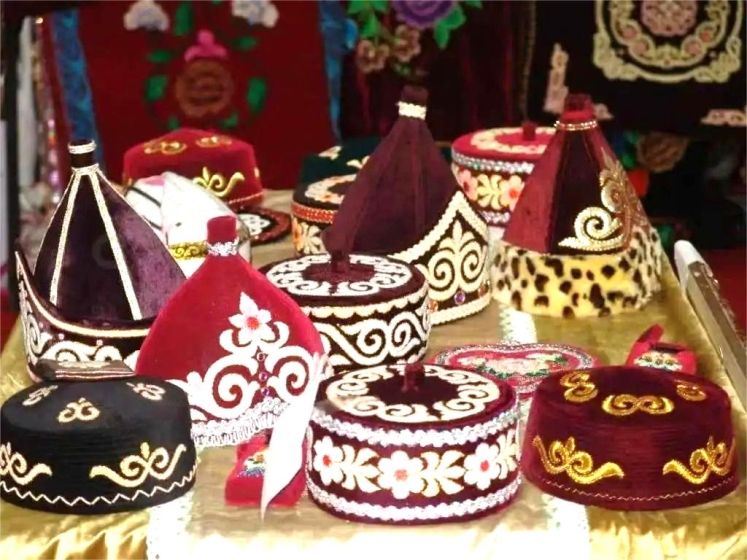
Kazakh wool felt
Handmade Carpets — Weaving Stories of a Thousand Years
Xinjiang is a renowned carpet-producing region in China, especially famous for handmade carpets from Kashgar and Korla. Dyed with natural colors, the wool is carefully woven by artisans over months or even years. The intricate patterns blend Central Asian and Islamic cultural elements. These carpets serve not only as home décor but also as artistic expressions conveying history and culture.
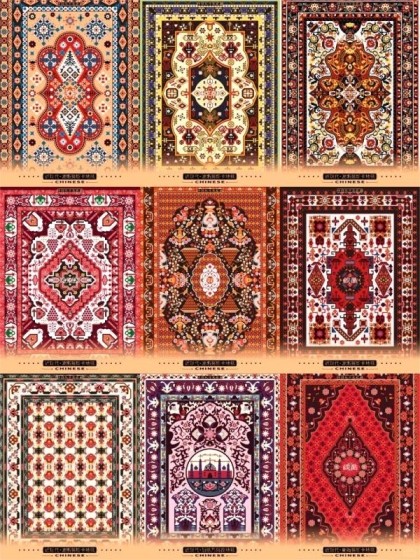
Xinjiang felt carpet
Carved Wood and Silverware — Ingenuity in Details
Wood carving and silverware in Xinjiang have a long history. Skilled craftsmen intricately carve wood and silver to create beautifully decorated boxes, utensils, and jewelry. Silverware often features embedded gemstones, radiating the soul of the ethnic culture and the warmth of handmade art. The markets in Kashgar Old Town and Urumqi are excellent places to shop for these artworks.
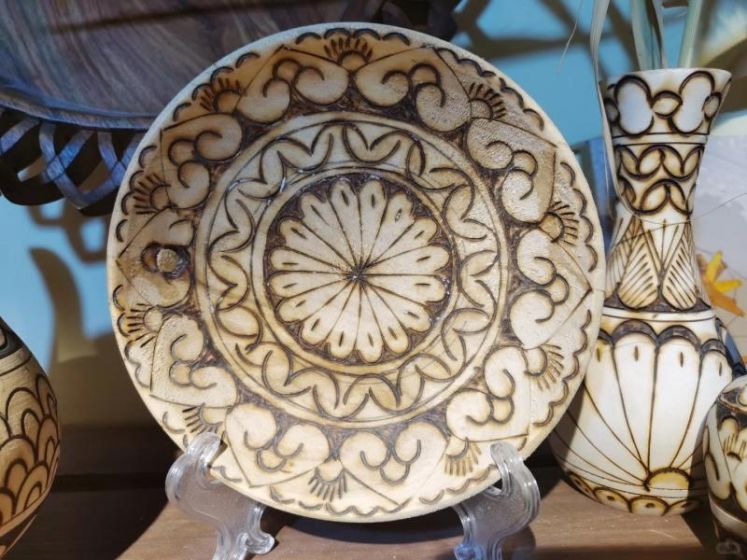
Wood carving products
Xinjiang Specialty Ceramics — The Art of Earth and Fire
Xinjiang ceramics combine techniques from both Central China and Central Asia, focusing on practicality and decoration. Commonly found in the markets of Turpan and Hami, the pottery is rustic with unique glaze colors. Hand-painted patterns often draw from natural and religious themes, rich with ethnic flavor.
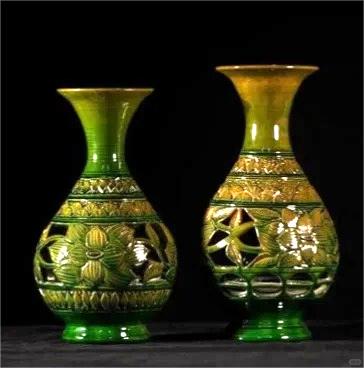
Xinjiang Specialty Ceramics
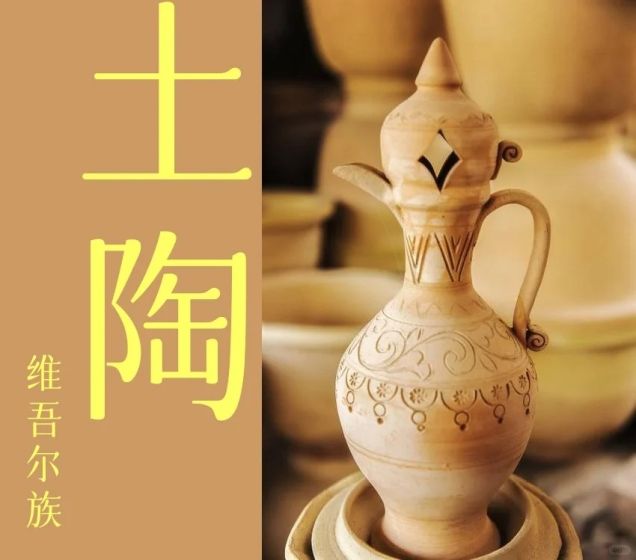
Shopping Tips for Xinjiang Handicrafts
The main places to buy Xinjiang handicrafts are Urumqi’s International Grand Bazaar, Kashgar Old Town, and the markets in Turpan. These locations have numerous stalls and shops with a wide variety of products, making it easy for visitors to find their desired crafts.
When purchasing, it’s best to choose reputable shops and carefully examine the craftsmanship and material quality to avoid buying poorly made or low-quality counterfeit items, ensuring you get authentic Xinjiang handicrafts.
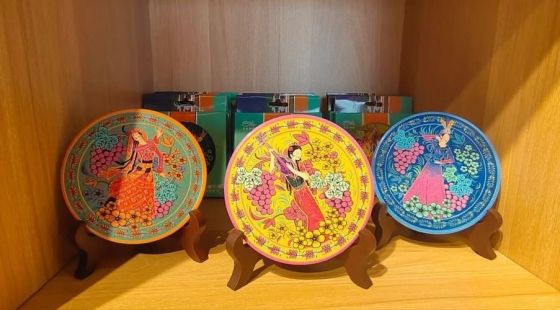
Ceramic Coasters
In traditional markets, moderate bargaining is generally accepted. Maintaining a friendly and respectful attitude not only makes the transaction smoother but often helps secure a better price.
Since many handicrafts are fragile, it’s advisable to ask the seller for careful packaging and also prepare suitable luggage yourself to ensure your items stay safe during travel.
Xinjiang’s handicrafts carry the wisdom and aesthetics passed down through generations of various ethnic groups. They are a vital window into the cultural charm of this remarkable land. Whether it’s the vibrant embroidery or the heavy handmade carpets, each piece tells a unique story of Xinjiang’s ethnic heritage. When traveling in Xinjiang, take home a favorite handcrafted item to make your journey a lasting memory.








